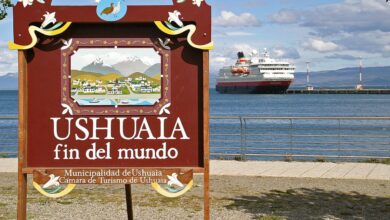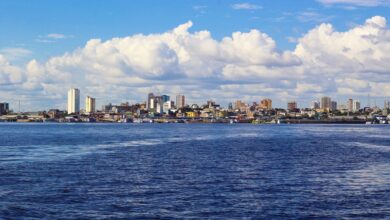Virtual ecology: plant and save trees through the Internet
Much of the world's population lives in cities; and even if they want to, they cannot plant trees where they are most needed
Much of the world's population lives in cities; and even if they want to, they cannot plant trees where they are most needed.

Companies and organizations are managing the planting of trees through the internet. / Photo: Pexels
LatinAmerican Post | Jorgue Guasp
Escucha este artículo
Leer en español: Ecología virtual: plantar y salvar árboles a través de Internet
To reverse this situation, there are companies and organizations that make it possible to manage, through the internet, the planting of trees in different territories.
Forest status and restoration alternatives
“It is estimated that since 1990, some 420 million hectares of forest have been lost due to changes in land use, despite the fact that the rate of deforestation has decreased in the last three decades. Between 2015 and 2020, it is estimated that the deforestation rate was 10 million hectares per year, when in the 1990s it was 16 million hectares per year ”(The State of the World's Forests, United Nations Organization for Agriculture and Food -FAO-, 2020).
Aware of the degradation of forests, many people want to collaborate to reverse this situation, but cannot or do not know how to do it. In order to channel this desire, social and environmental organizations have been formed whose partners, through an economic contribution, get involved in this cause without the need to personally participate in field tasks.
In the case of tree planting, and although any interested person can place a specimen on their sidewalk or patio, or even in a public space, it is complex: it depends on the availability and transfer of the trees, native plants, and an adequate technique of conditioning and planting the trees, in order to guarantee the survival of the largest possible number of specimens.
The Internet has made it possible to go from information to action
The irruption of the Internet in the market has made environmental information reach the whole world, and that anyone can acquire knowledge about the threats facing nature. However, the global network has also made it possible to get to work, through companies or organizations directly involved in specific tasks, such as planting trees.
Although there are several entities that are dedicated to planting trees on request, under different modalities, some examples of this alternative of remote environmental management are mentioned below:
Ecosia, an Internet search engine, announces on its website that "Ecosia is like any other search engine, but with one big difference: our profits go to planting trees." Through a video, under the title "Every search counts; discover how Ecosia users help change the world", the platform explains how it works.
According to the English site BBC Mundo, in its note of August 24, 2019, entitled Ecosia and the fires in the Amazon: how the internet search engine that promises to "plant trees" works (and what evidence it offers), "its automated counter indicated that until this 23rd August, Ecosia has collaborated in the planting of more than 65 million trees around the world ".
The Treedom platform, for its part, assures that it “finances farmers who want to plant trees, supporting their work in the first years, when the trees are not yet productive. Treedom provides farmers with knowledge and technical assistance to plant and manage trees. The trees are photographed, geolocated, and monitored by Treedom over time ”.
In the case of Tree-nation, the platform claims to be “a citizen solution to Climate Change: Tree-Nation gathers and coordinates reforestation initiatives from around the world in a single platform, allowing the participation of citizens, companies, and planters”. This platform offers two modalities: plant trees as a citizen, or do it as a company. In both cases, Tree-nation calculates the amount of CO2 offset through the plantation.
According to the famous business magazine Forbes, in their article Tree Economics – Are Entrepreneurial Solutions The Key To A Greener Planet? (Forest Economics: Are Entrepreneurial Solutions the Key to a Greener Planet?), December 22, 2019, “Tree-Nation has planted around 5 million trees in Europe, the United States, Asia, the Middle East, South America, and Central America. The company's internet platform offers a simple proposition: for a small fee, an individual or a company can approve a tree planting from the comfort of an office or a living room. "
Also read: Forest fires: a growing threat to the world's forests
Unlike the aforementioned platforms, the Banco de Bosques Foundation does not plant trees but instead allocates the donations it receives to the purchase of forests for their conservation. According to the foundation, with this initiative “a space is created through which the wholesale business for purchasing land with forests also becomes a retail business. A warehouse of hectares of forests in which everyone can participate by contributing from a few square meters to several hectares of forests that are saved automatically. This progress of hectares saved can be followed step by step on the Banco de Bosques website and each donor can know exactly where that little piece of the planet is that was saved thanks to their contribution. "
Tree planting, personal or virtual, helps heal the planet
In all cases, companies, organizations, or foundations provide the geographic data (geolocation) of the planted or protected trees. And although these initiatives provide some profitability to those who organize them, they also represent a way to get involved in nature conservation, without having to dip your hands in the ground or go into the forest.
It is up to each person the decision to resort to these systems, or to commit to the old way: dig a well and plant a tree with their own hands. Ultimately, the important thing is to undertake the task of increasing the number of trees in different countries, in order to stop the destruction of forests, whose environmental goods and services are essential for the preservation of life on the planet.




